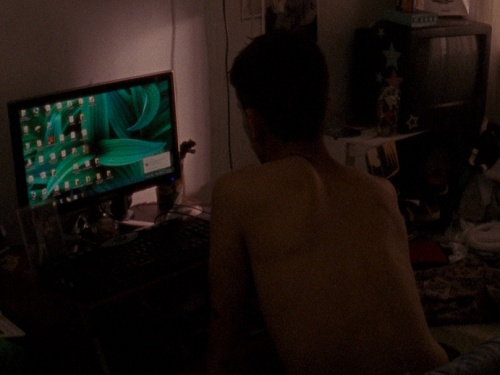The Prosaic Sublime of Bela Tarr
Béla Tarr is a director who divides the field. He makes slow, stark films about lives in which little happens, combining old-fashioned values and innovative methods. He records the basic elements of domestic life with incongruously sweeping, virtuoso cinematography and picks apart the rudiments of human role-play with elaborate subtlety, coordinating gritty detail and a sense of the universal in a way that some see as visionary and others find tedious. Jonathan Rosenbaum, the American film critic, has dubbed Tarr a ‘despiritualised Tarkovsky’. I find him a less lapsed and more conflicted creature: a hopeful cynic or scatological mystic, whose films are as aggressively earthbound as they are inspiring.
Born and raised in Hungary, Béla Tarr began his directing career in the 1970s at the Béla Balázs studios in Budapest, where he fell in with a group of ‘documentarist’ directors dedicated to representing the lives of the working class in as pared-down and unembellished a way as possible. His early films Family Nest (1979) and The Outsider (1981) are classic examples of the school, but through the eighties he developed away from it as he absorbed the influences of European art house cinema, particularly Rainer Werner Fassbinder and Jean-Luc Godard, and became interested in form, composition, metaphysics and the history of film.
In 1984 he began collaborating with the Hungarian writer László Krasznahorkai, with whom he went on to create many of his greatest films, Damnation (1988), Sátántangó (1994) and Werckmeister Harmonies (2000) – these last two adaptations of Krasznahorkai’s novels Sátántangó and The Melancholy of Resistance, respectively. The elaborate sentences and unorthodox structures of Krasznahorkai’s novels seem to have informed Tarr’s own formal innovations – the lengthy takes, chapter divisions and sprawling psychological odysseys of which his later films are composed. It is also in Krasznahorkai’s literature that Tarr seems to have identified a vast and surreal perspective through which to envision the lives of ordinary people. Though the range of Tarr’s artistic relationships and interests has shaped a highly distinctive approach, it also has much to do with his cultural position. Working between Soviet-scarred Hungary and the comparatively prosperous and liberated West seems to have afforded him a peculiarly mixed sensibility: aesthetically both spartan and grand and politically as aspirational as it is hopeless.
Tarr has only made nine feature films and claims that his most recent, The Turin Horse (2011), will be his last. Though dogged by a cult following from his early output, it is only in the past decade that he has acquired a fuller fan-base, starting with Artificial Eye’s release of his films on DVD and culminating in the Jury Grand Prix award for The Turin Horse, co-written with Krasznahorkai, at the Berlin film festival in 2011. Yet he is still little known and much misunderstood. If his latest film is indeed to be his last, he surely deserves an appraisal that debunks the myths surrounding his work and celebrates what he has discreetly created. The shit is cosmical: he has made for cinema a prosaic sublime.
His is an art form of dissolving contrasts in which the everyday lives of individuals are located within the broader frameworks of politics and nature. Minutiae are shown to contain the seeds of power, survival or despair, and the vile or banal is filmed with astonishing sensitivity. This is an essentially disproportionate worldview that pits paradox against conventional logic, taste or taxonomy. It follows the effects of huge historical, even meteorological forces on tiny populations; it proves that beauty can inhere in something as simple as wood grain; and it suggests different ways in which to conceive of, even perhaps accept, cruelty and boredom. Alternatively it witnesses how such sliding scales and acute contrasts might provoke madness or revelation. In The Turin Horse there is a long, luminous chiaroscuro close-up of a steaming baked potato. In isolation it might seem bland, indulgent or absurd, but in the story’s context of desperate hunger, the messianic splendour of the vegetable makes sense. In this way the excesses or eccentricities of Tarr’s vision have a function in depicting lives distorted by hardship or isolation. This gloss of the prosaic sublime sheds light on the director by elucidating the ways in which apparently contradictory, inappropriate, fanciful or gratuitously depressing elements in his work also have radical meaning.
This is an extract from an essay by Rose McLaren, 'The Prosaic Sublime of Bela Tarr', published in The White Review No. 6. Werckmeister Harmonies is screening at the ICA on Sunday 16 December.





